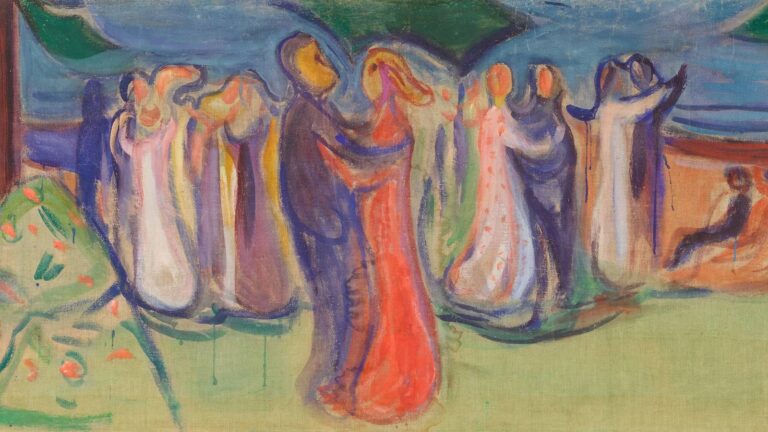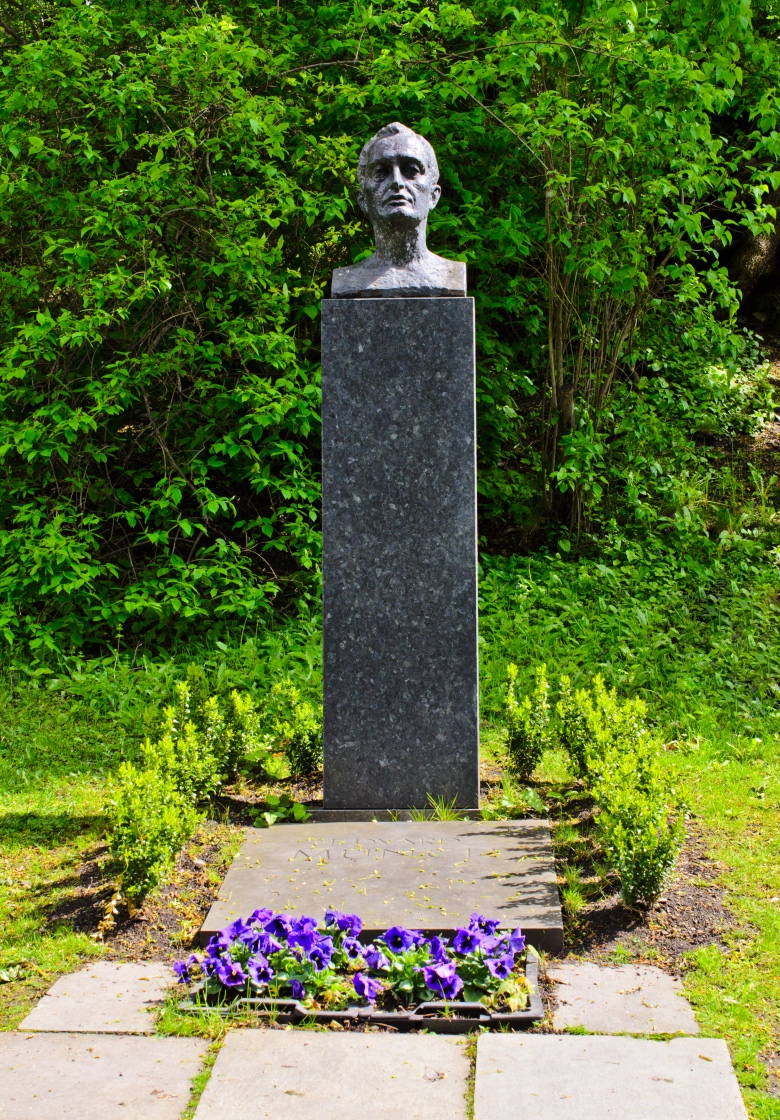An original Edvard Munch painting with a storied past fetched an eye-watering sum at the Sotheby's auction house in London. Read on for the fascinating story.
It's not every day a painting by a world-famous artist goes up for sale. But that's exactly what happened as the eyes of the art world fell on Sotheby's in London on 1 March.

The four-metre-wide painting Dans på stranden (Dance on the Beach) by legendary Norwegian artist Edvard Munch sold for a total of GBP £16,940,300. That's around USD $20.3 million or NOK 210 million, including costs.
While that didn't match the heights of one of the versions of The Scream that stunned the art world with its $119 million sale price in 2012, it's still a very notable sale.
Sharing the sale proceeds with a previous owner
But the real story here is about the painting itself, and where the money will go. Petter Olsen, the heir to a vast shipping fortune, put the Munch painting up for sale having previously sold others included in his inheritance.
But this time, Olsen will share the proceeds with the heirs of a previous owner who was forced to offload the painting before fleeing Nazi Germany in the 1930s.

Petter Olsen told NRK he was “very satisfied” with the sale, which fell within the expected range publicised by Sotheby's. “This occasion is a historic meeting between two families who have both admired and supported Munch's artistic life and work in Germany and Norway,” he added.
The fascinating story of “Dance on the Beach”
To understand the story of the painting, we must travel back in time to 1906. It was then when world-famous theatre director Max Reinhardt commissioned Munch to paint for his new Berlin theatre.
Reinhardt asked Munch to design the sets for his new theatre, which was to stage the play Ghosts by Munch's fellow countryman Henrik Ibsen. He also asked Munch to create a frieze for the upper level.
The final installation was known as The Reinhardt Frieze. It consisted of twelve canvases with the four-metre-long Dance on the Beach at the centre. All except the painting that went under the hammer at Sotheby's are housed in museum collections in Germany, including Berlin’s National Gallery, the Hamburg Kunsthalle and Folkwang Museum, Essen.

When the theatre was refurbished, the frieze was split up. Dance on the Beach was bought by art historian Curt Glaser, a leading figure in Berlin's art scene. However, the jewish Glaser had to quickly sell his art collection and flee after the Nazis took power in 1933.
Read more: An Introduction to Norwegian Art
Thomas Olsen acquired the painting and hid it in the Norwegian forest during the Second World War along with several versions of The Scream, including the one sold in 2012.
Because Glaser was essentially forced to sell Dance on the Beach, the families agreed that the sale proceeds would be divided. Olsen himself contacted the Glasers' lawyer about the sale, which came as a surprise to the heirs.
It's not the first time the heirs to Glaser have been compensated. In 2020, the Art museum in Basel compensated the Glaser heirs for 200 works of art. Other museums including Cologne's Ludwig Museum and Amsterdam's Rijksmuseum have returned works to the family.

